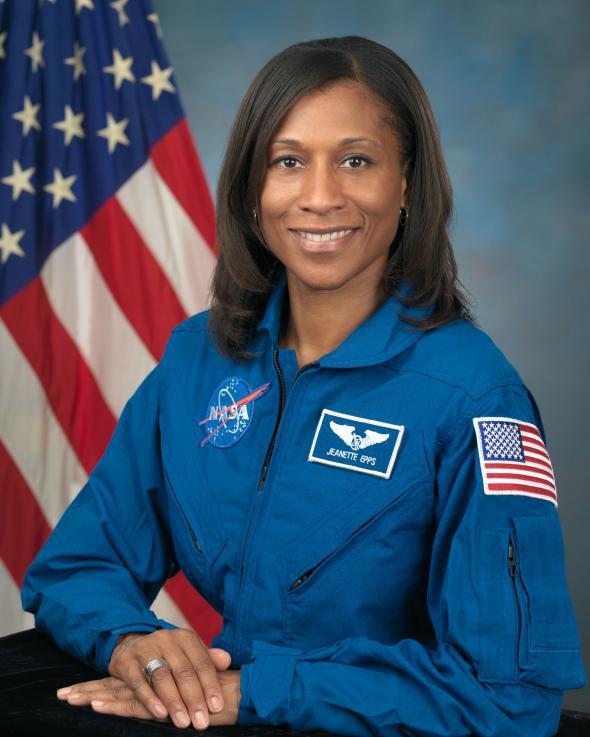In 2018, astronaut Jeanette Epps will become the first black American astronaut to join the crew of the International Space Station. NASA announced the upcoming months-long mission last week; it will also be Epps’ first trip to space.
In a NASA video, Epps said she was inspired to become an aerospace engineer as an elementary schooler by Sally Ride and other early female astronauts, as well as some words of encouragement from her brother. Ladies and gentlemen, female role models in action. Since that fateful early-1980s burst of motivation, Epps worked to build up the kind of unimpeachable résumé it takes to make it to NASA: After getting undergrad and master’s degrees, she earned a Ph.D. in aerospace engineering at the University of Maryland. She then spent a few years working for Ford and the CIA, and again with a little encouragement (this time from a friend and fellow astronaut), Epps landed in NASA’s astronaut class of 2009, one of just nine picks out of 3,500 applicants. (By the way, God, does astronaut school need to be a Shondaland show ASAP.)
Epps will join Expeditions 56 and 57 to the space station. The space station has been “continuously occupied since November 2000,” according to NASA, manned by a rotating international crew of six people. Together, they travel “at a speed of five miles per second, orbiting Earth every 90 minutes.” Over 200 astronauts have visited over the years, but it probably won’t surprise you to know that most of them were white and male. (Interestingly, on Epps’ trip, most of the crew will be Russian, so she’s already been studying up on the language.) Epps will be the first black American to take an extended stay as one of the crewmembers; she will also be the 14th black American astronaut to visit space. And if you need any more proof that she’s smart, just look at the excellent timing of her decision to leave Earth. Just when it’s starting to really suck here!
Along with this weekend’s release of Hidden Figures, Epps’ appointment lends a spotlight to the larger conversation about improving the number of black women in STEM. The movie tells the true story of three black female NASA employees who helped send John Glenn into space. Despite the success of a few standouts, black women are woefully underrepresented in STEM fields (making up less than 1 percent of doctoral degrees, according to some numbers), rendering the experience of pursuing a STEM degree “isolating” for the few who do it. In a field where role models can make all the difference, Epps’ existence and movies like Hidden Figures could make a real impact in encouraging young women to see themselves in math and science careers. And Epps seems comfortable taking on the mantle of black female STEM hero: She has supported Hidden Figures publicly and appeared in a NASA clip promoting it, and elsewhere, she has cultivated a young audience by tweeting and giving interviews to outlets like Lenny Letter.
If Hidden Figures’ box office returns are any indication, a new generation of black female scientists could be taking root already: The movie beat out Rogue One to take the No. 1 spot in its opening weekend. With any luck, maybe by the time Epps gets back from space, her achievement won’t feel like such an anomaly.
